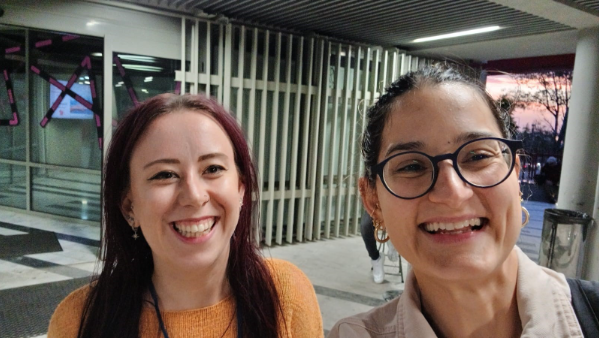Researchers present the cognitive effects of second language exposure for children
Bethan Collins is a 3rd year PhD researcher in Bilingualism studying the cognitive effects of second language exposure in childhood.
From 11th-13th October, I attended the 17th International Conference of Applied Linguistics at the Aristotle University of Thessaloniki with my supervisor, Dr Athanasia Papastergiou (one of the lab's academic collaborators and a former lecturer at Bangor University). We gave a talk, entitled: "Exploring Bilingual Advantage in Executive Functioning: Insights from Greek-English and Welsh-English bilingual children in the UK". This presentation discussed findings from both Athy's and my PhD studies, both of which were funded by the Welsh Graduate School for Social Sciences.
Our presentation formed part of the Thematic Session, ‘language and executive functions in monolingual and bilingual speakers’. Here, we were fortunate to present alongside other groundbreaking research into executive functions in both monolingual and bilingual children. The conference was a great opportunity to network with researchers from all fields of linguistics, as well as continuing previous collaborations. It also gave us a fantastic opportunity to explore more of Greece, which was very welcome!
Wales is world-leading in terms of bilingualism research, largely thanks to PhD funding from the Welsh Graduate School for Social Sciences. This conference was a brilliant opportunity to share our research with colleagues in Linguistics who often work in largely monolingual environments. The world is becoming increasingly diverse, and this means that even the most traditionally monolingual environments are likely to become more bilingual. As a result, it’s vital that all researchers and professionals are familiar with bilingualism and its cognitive consequences. We hope that our presentation provided attendees with a novel insight into bilingualism and its cognitive benefits, as well as encouraging them to consider the linguistic experiences of the populations they work with.

